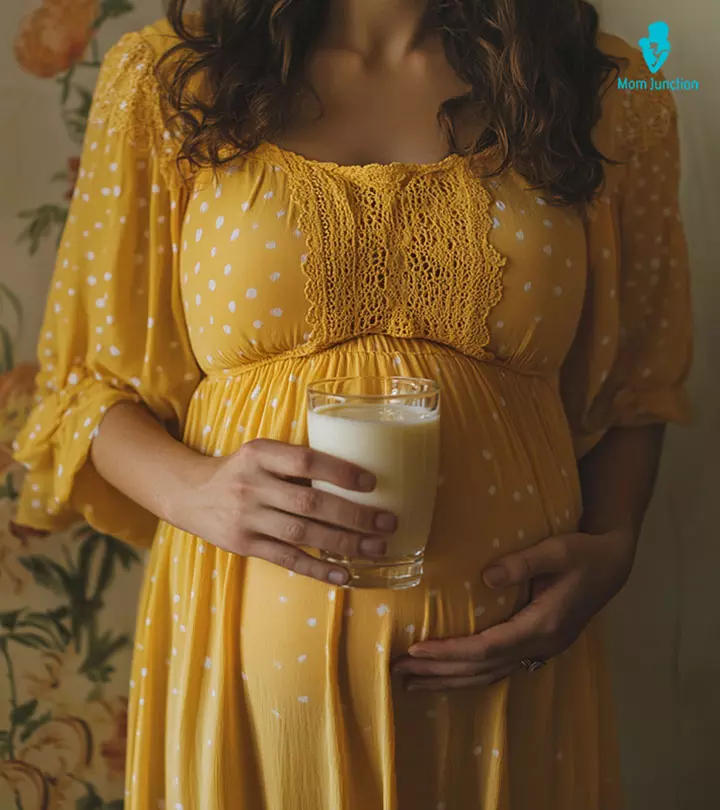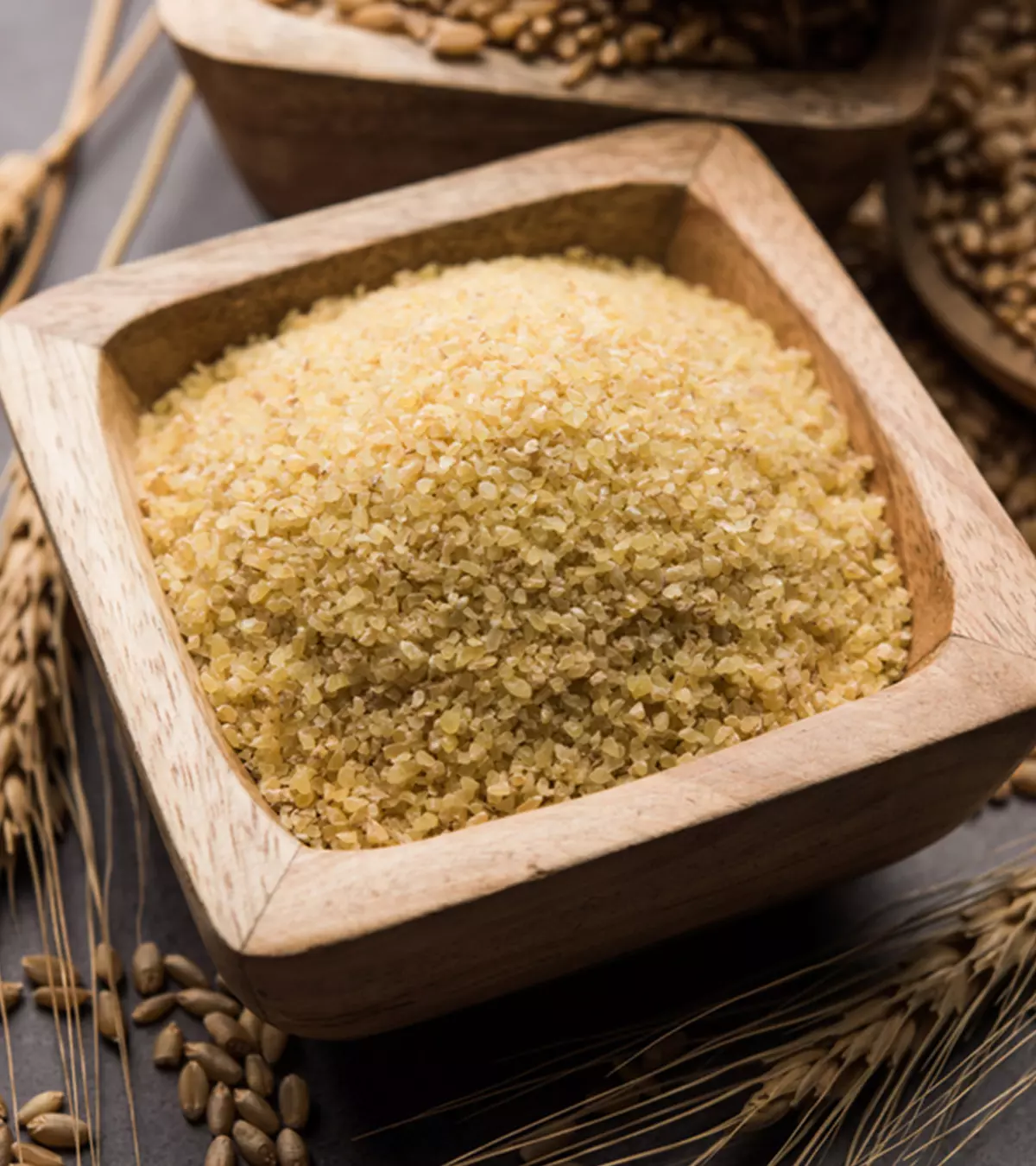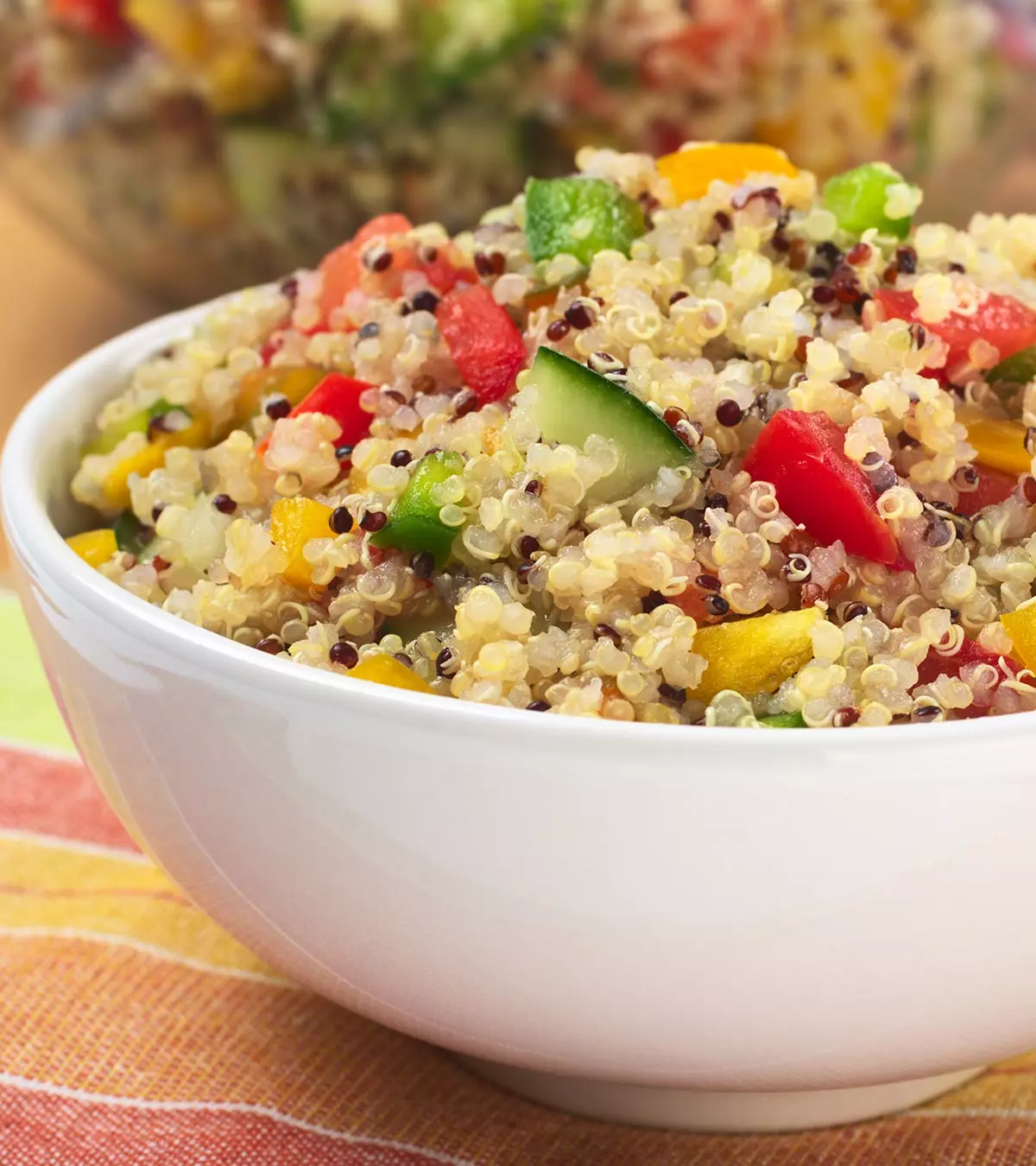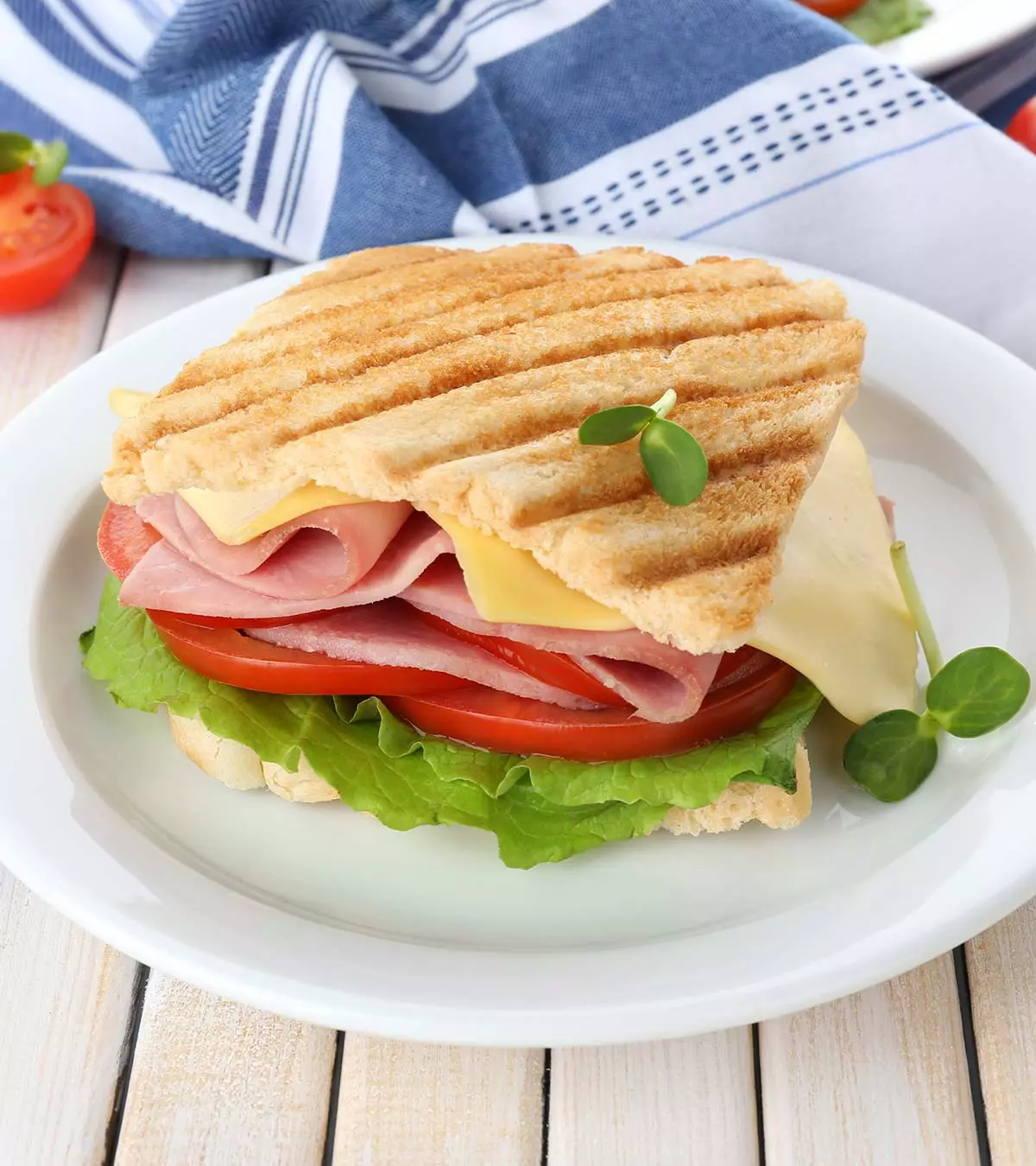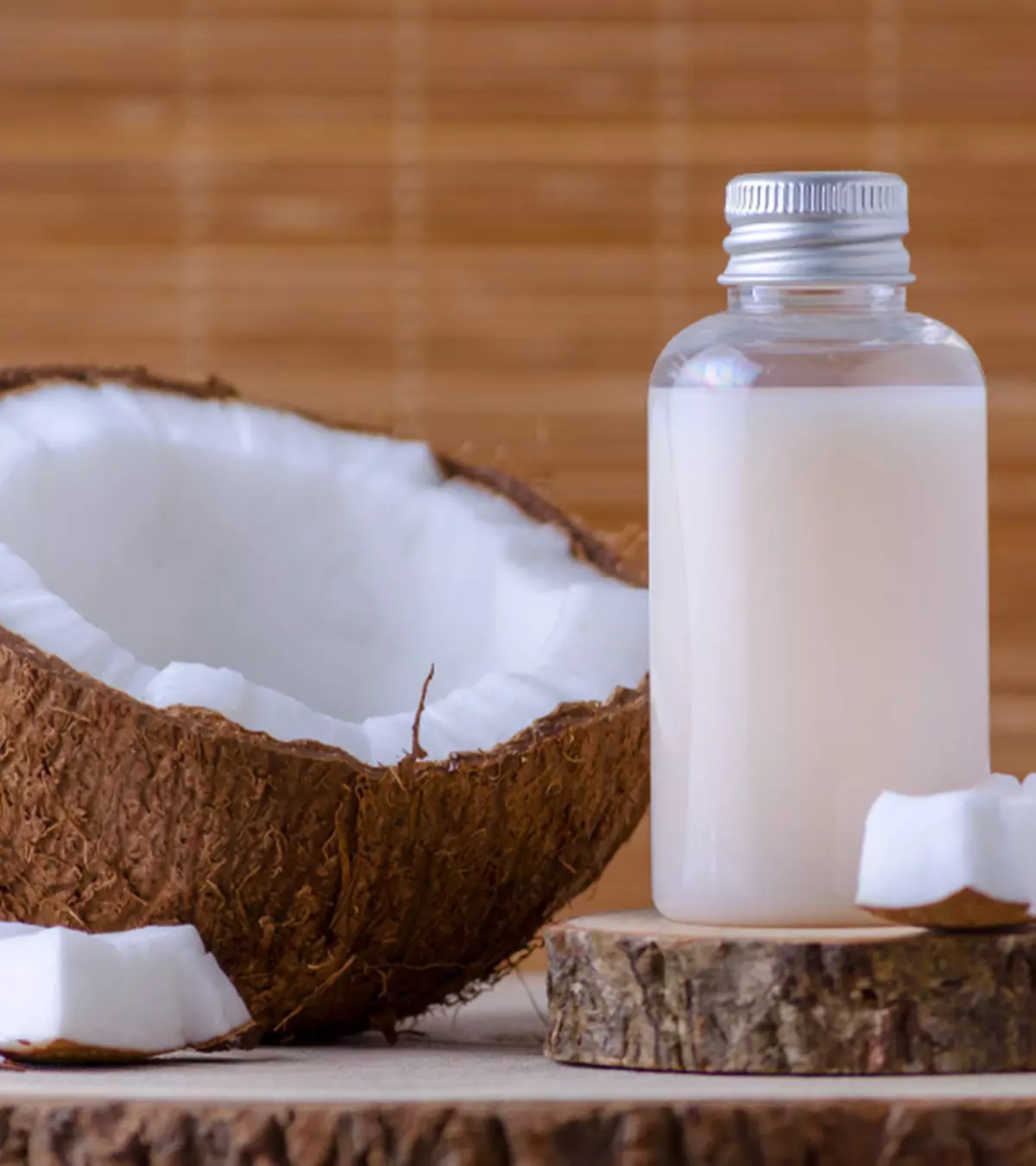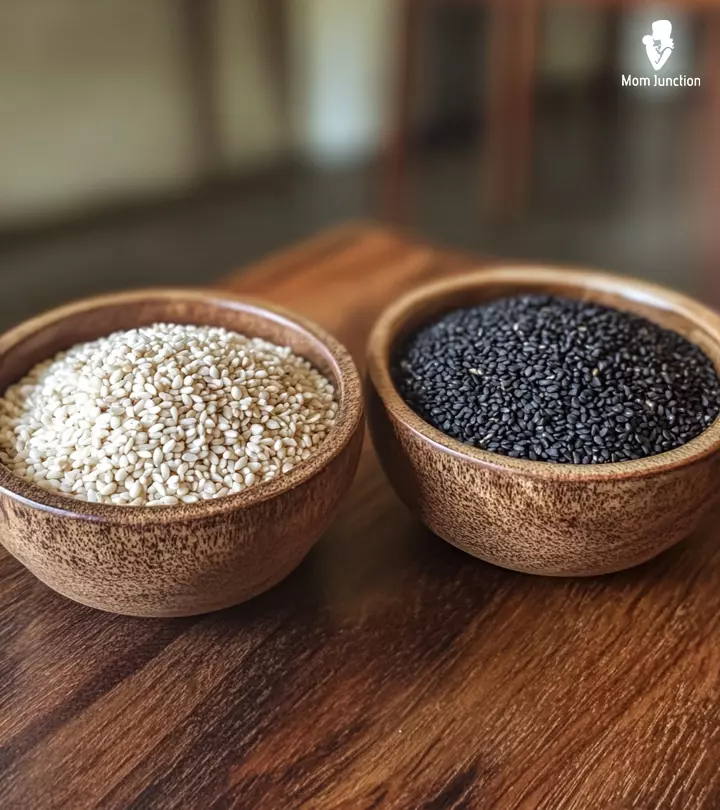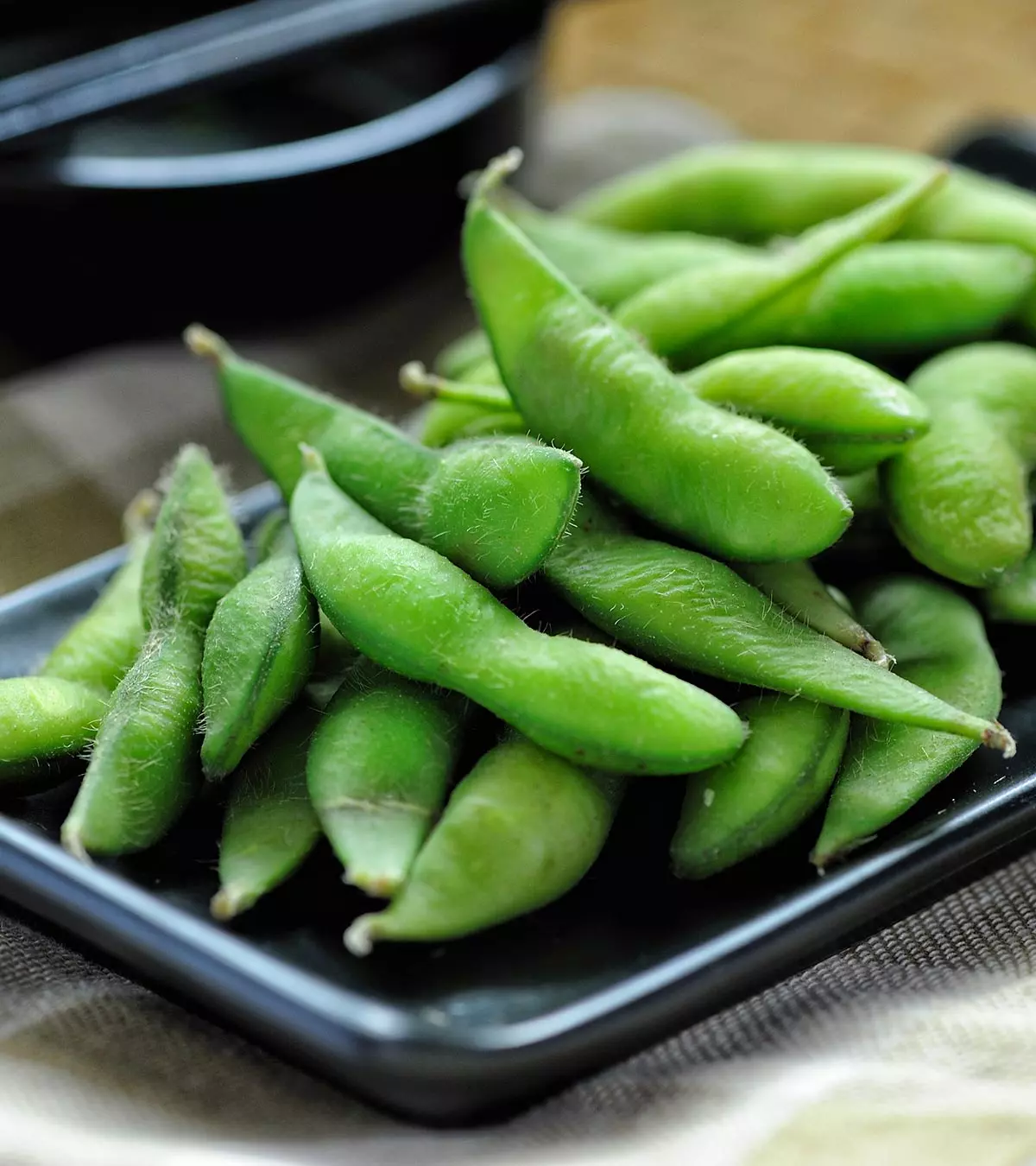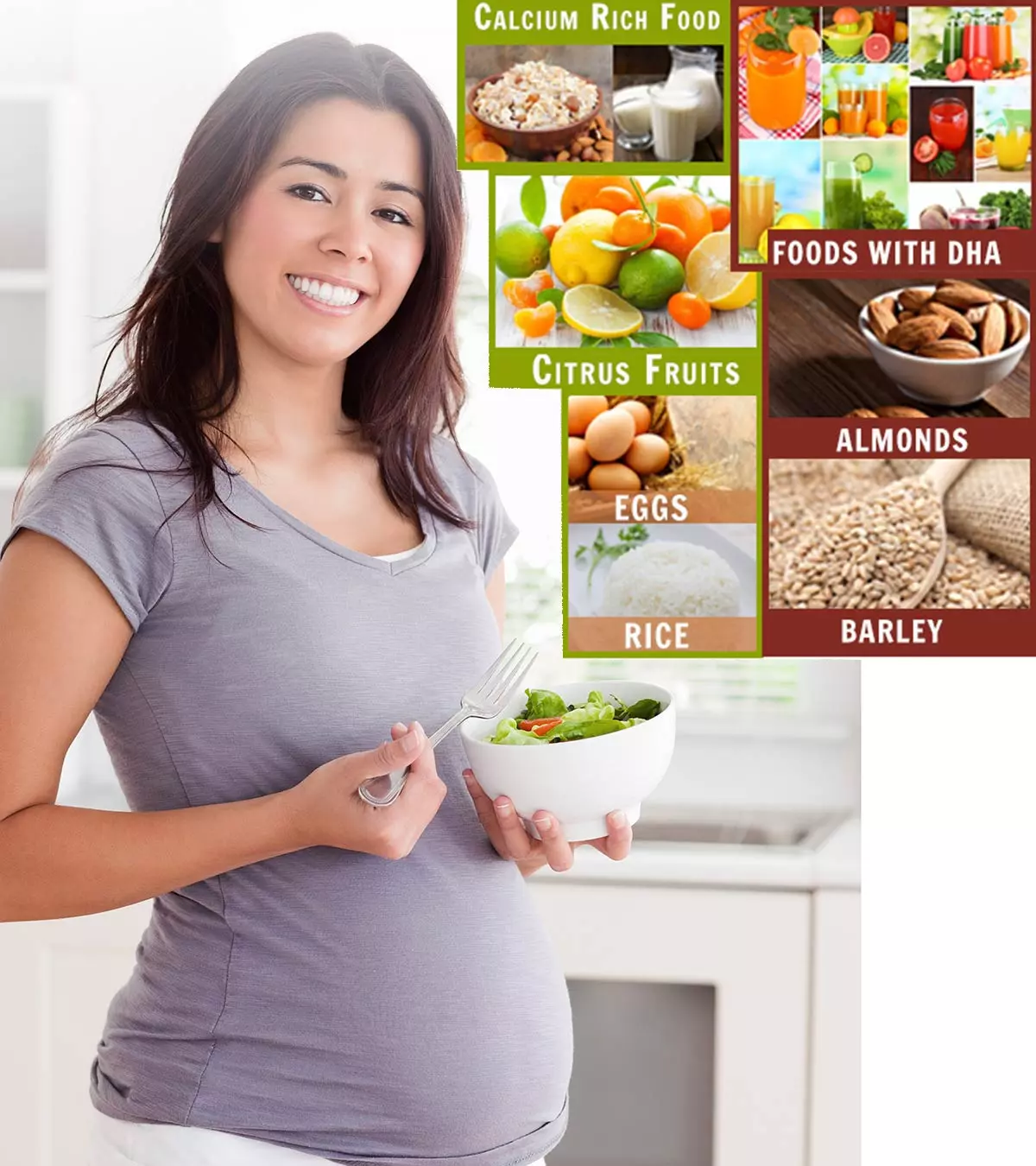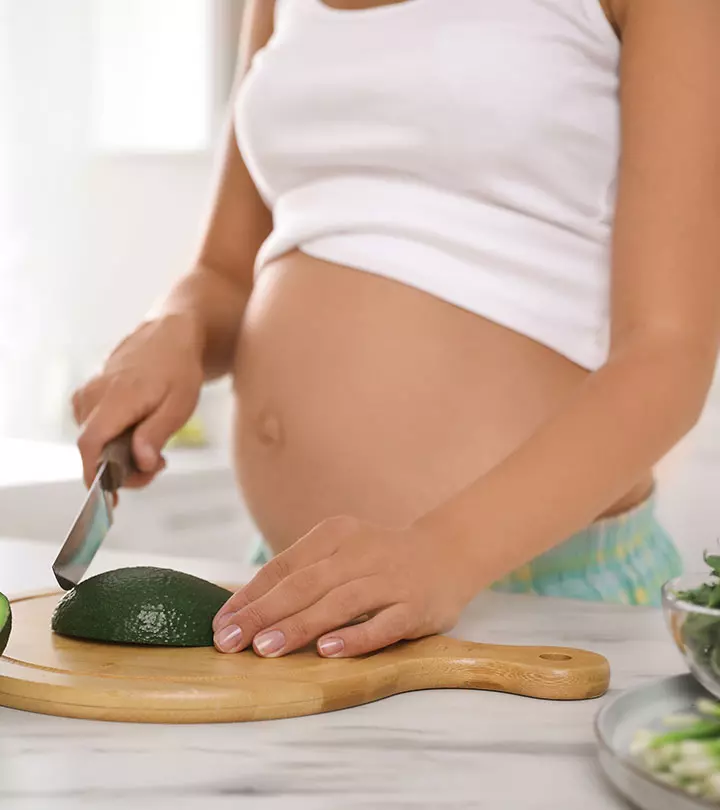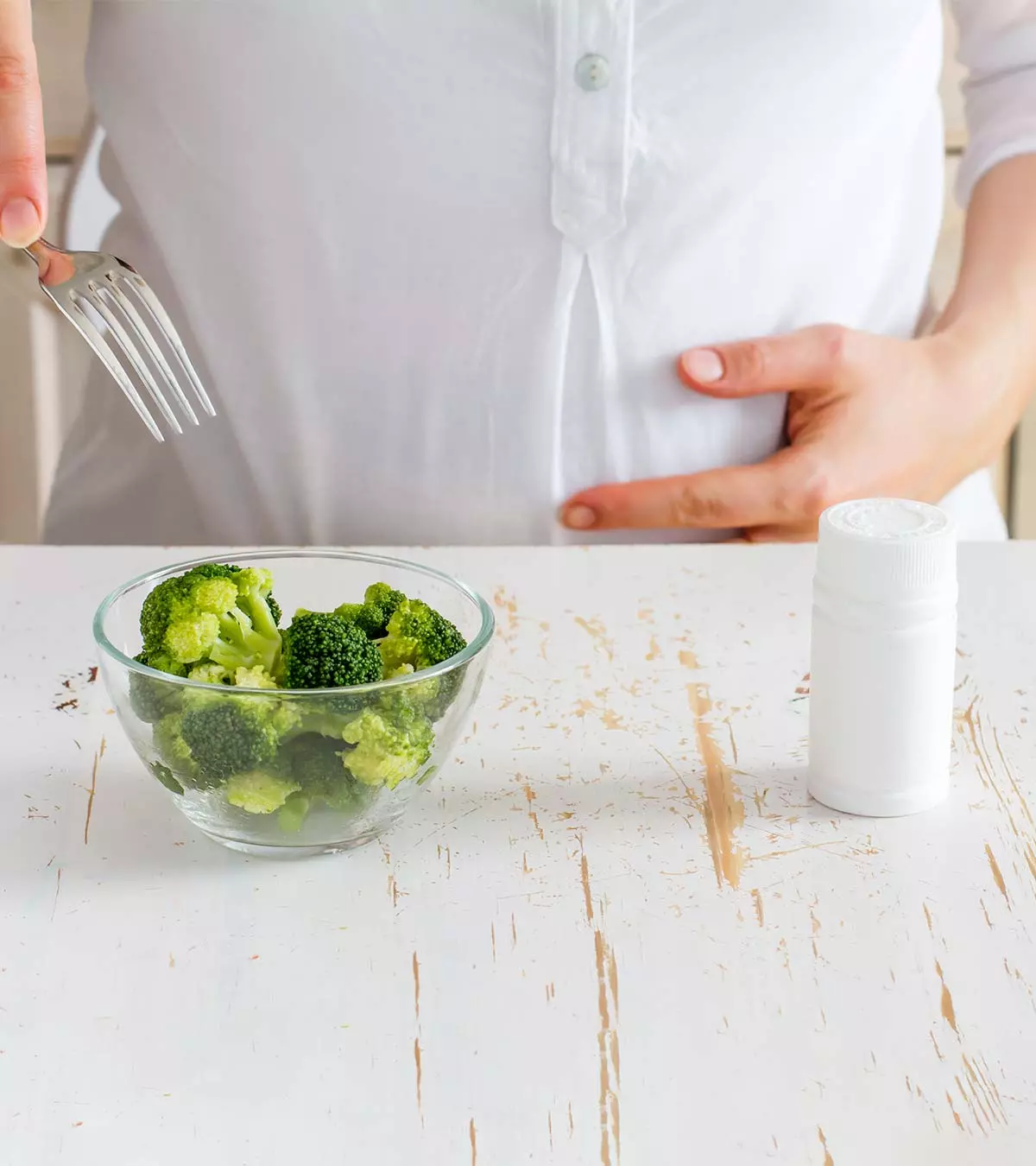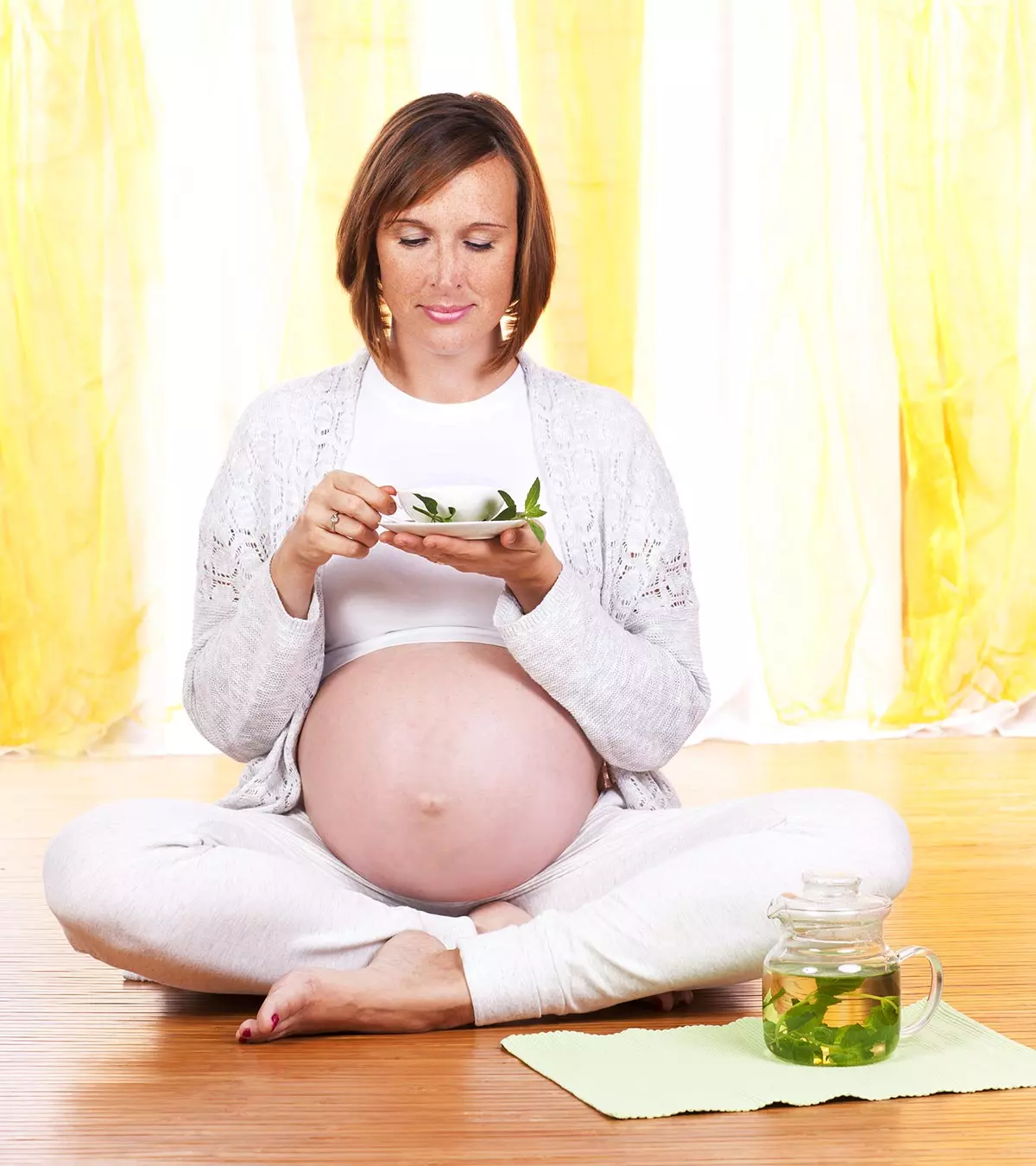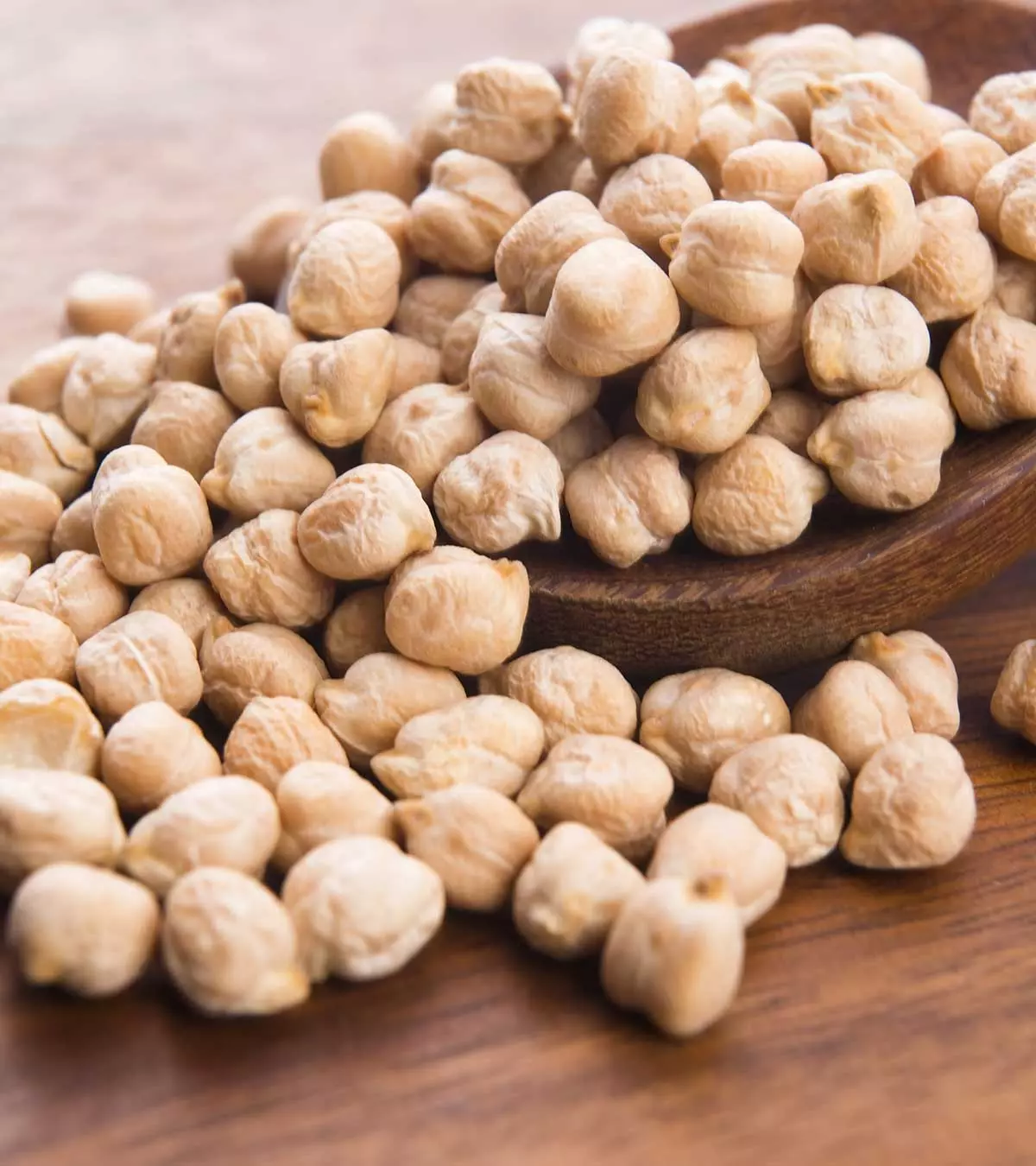
Image: ShutterStock
Chickpeas fall under the category of legumes that are rich in carbohydrates, fibers, and proteins. The benefits of having chickpeas during pregnancy are many. Being rich in folateiNatural form of vitamin B9 that helps in the production of red blood cells , potassium, and proteins, they can be used to make healthy and nutritious snacks or meals to satisfy your cravings during pregnancy. Instead of opting for unhealthy junk foods, try these wholesome ones, which are beneficial for you as well as your baby. Read this post to know about the benefits of having chickpeas while pregnant, the recommended amount to have, and also the possible side effects of having too much of it.
Key Pointers
- Chickpeas are rich in essential nutrients such as carbohydrates, proteins, fiber, folate, calcium and potassium, required for pregnant women.
- Well-cooked and moderate amounts of chickpeas are beneficial for maternal health as well as fetal development.
- Consumption of chickpeas also helps fight gestational diabetes, asthma, and anemia and prevent birth defects..
- However, overconsumption of chickpeas may lead to bloating or allergies during pregnancy.
Can Pregnant Women Eat Chickpeas?
Yes, chickpeas or garbanzo beans are rich in essential nutrients such as fiber, calcium, and potassium that you require when you are pregnant. They also contain folate and omega-3 fatty acids, which is one of the vital nutrients for pregnant women (1). Chickpeas should be adequately cooked and consumed in moderation to avoid any adverse effects on your health.
Julianna Coughlin, a Massachusetts-based registered dietitian nutritionist, says “Chickpeas as long as they are washed and cooked are completely safe to eat in any form during pregnancy if you don’t have an allergy. And you can eat them during any trimester as they are great sources of protein and fiber.”
Nutritional Profile Of Chickpeas
According to the United States Department of Agriculture (USDA), one cup or around 164g of cooked chickpeas provides 269kcal, 14.53g protein, 44.97g carbohydrate, 12.5g fiber, 80mg calcium, 276mg phosphorus, 79mg magnesium, 477mg potassium, 80mg calcium, and 282µg folate (2).
The high nutritional value of chickpeas makes it one of the most recommended foods for pregnant women.
Health Benefits Of Chickpeas In Pregnancy
Chickpeas are a vital part of the Mediterranean diet that are a great source of several nutrients. Adding them to your routine diet in any form (fully cooked or boiled) could:
- Prevent birth defects: Folate is an essential nutrient for pregnancy. It helps in the growth of the baby and prevents neural tubeiThe hollow structure in the developing embryo, which grows into the brain and spinal cord defects. The recommended daily intake of folate for pregnant women is 400mcg. Chickpeas are a natural source of this nutrient and hence, should be included in the diet (3). It can lower the risk of neural tube defects by up to 70% if taken in the right amounts before and during early pregnancy (4).
- Manage gestational diabetesiCondition characterized by high blood sugar levels during pregnancy : According to the Centers for Disease Control and Prevention (CDC), the incidence of gestational diabetes among women in the US was about 8.3% in 2021, a significant increase from 6.0% in 2016. Hence, to control blood sugar levels and manage gestational diabetes during pregnancy, you need to add more fiber to the diet. One cup of chickpeas can give you 13g of fiber (4) and keep the risks of gestational diabetes at bay.
- Protect from asthma: A study suggests that pregnant women who consumed high amounts of fiber-rich foods reduced the risk of asthma in their babies. So it is possible that eating chickpeas during pregnancy could protect babies from respiratory illnesses such as asthma (5).
- Treat constipation: Many expecting mothers suffer from constipation. Consuming foods such as chickpeas, which are packed with fiber, could offer some relief from this (5).

Image: Shutterstock
- Help in baby’s growth: Protein plays a crucial role in the development and maintenance of body tissue and muscles. For individuals following a vegetarian diet, chickpeas can be a valuable source of plant-based protein (6).
- Reduces the risk of anemiaiA health condition characterized by a deficiency of red blood cells in the blood : Including iron-rich foods in your pregnancy diet could prevent anemia or reduce its risk. Chickpeas are one of the good sources of iron to have during pregnancy (7).
Excess consumption of healthy foods could also trigger some health problems during pregnancy. In the next section, we look at the possible side effects of eating chickpeas in excess.
 Did you know?
Did you know?Possible Side Effects Of Chickpeas
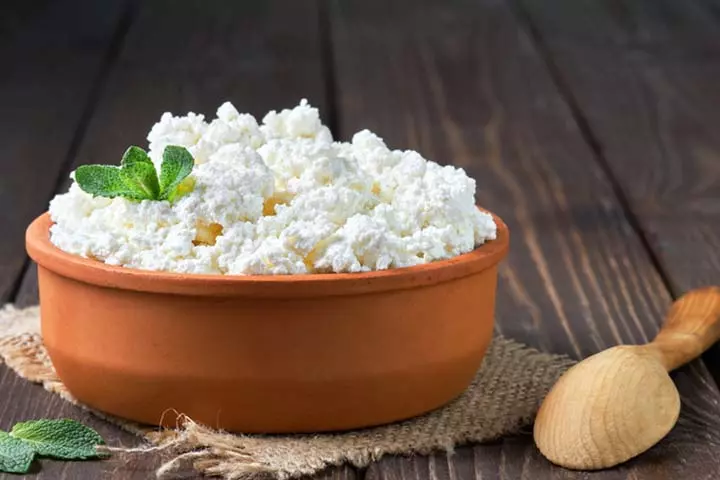
Image: Shutterstock
Although they are nutrient-rich, chickpeas should be avoided in the following cases.
- If you are intolerant or allergic to legumes, then you should not have chickpeas. Some of the common symptoms of an allergic reaction to chickpeas include itchiness, bloating, respiratory issues, headaches, acne, and fatigue (8).
- In the case of diarrhea or any other bowel problem during pregnancy, you should try to avoid or reduce the consumption of fiber-rich foods. You may replace chickpeas with curd or cottage cheese (paneer) (9).
If you have an upset tummy or you feel bloated, you may avoid eating chickpeas. Otherwise, you can prepare it in different ways and enjoy it.
Ways To Include Chickpeas In Pregnancy Diet
Here are some of the easiest ways in which you can include chickpeas in your healthy eating regimen:
- Boil the chickpeas and roast them with spices.
- Make a curry with chickpeas and have it with flatbread or rice.
- Hummus is one of the popular dips you can make with chickpeas.

Image: Shutterstock
- You can also make a healthy salad with boiled chickpeas, sprouts, and some vegetables and squeeze some lemon on it.
 Quick tip
Quick tipFrequently Asked Questions
1. Do chickpeas cause gas in pregnancy?
Chickpeas contain complex carbohydrates (oligosaccharides) that are not digested by the human digestive system but are fermented by bacteria in the colon, which cause flatulence and gas (11).
2. Can I eat canned chickpeas while pregnant?
Pregnant women can consume canned chickpeas in moderation as part of a well-balanced diet. However, ensure to choose low-sodium options with minimum additives. Additionally, rinse them thoroughly before use to reduce their sodium content.
3. What happens if I eat raw chickpeas during pregnancy?
Eating raw chickpeas during pregnancy is not recommended, as they are difficult to digest. Additionally, they may contain lectins that may cause gastrointestinal issues such as gas and bloating and may harm the fetus (12).
4. What happens if I eat chickpeas every day during pregnancy?
Eating chickpeas as a part of a healthy, well-balanced diet during pregnancy is generally safe. However, eating them daily, especially in large amounts, may cause gastrointestinal issues. Thus, it is essential to eat chickpeas in moderation.
5. What are the best ways to prepare chickpeas for maximum nutrition?
Cooking chickpeas until they are tender ensures that their nutrients, including protein, fiber, and essential vitamins, are well-preserved. It is best to soak them before cooking. Soaking helps to soften the beans and reduces cooking time. After soaking, cook them using boiling, pressure, or slow cooking methods.
Chickpeas during pregnancy can be a good source of important nutrients like iron, folate, potassium, protein, and fiber. It may prevent maternal and fetal complications such as anemia, gestational diabetes, and neural tube defects. Chickpeas can be consumed when added to salads, boiled, and made into curries or dips such as hummus during pregnancy. However, if you have gastrointestinal problems or diarrhea, high-fiber-containing chickpeas are not suitable. Also, if you have an intolerance for legumes, chickpeas may cause allergic reactions such as bloating, itching, or fatigue and should be avoided. If you worry about missing any nutrients, speak to your doctor about using prenatal vitamins.
Infographic: Benefits Of Chickpeas During Pregnancy And When To Avoid
High in protein and fiber, chickpeas are healthy legumes to be included in your pregnancy diet to meet your increased nutritional needs. They can be consumed as an ingredient in hummus, curries, salads, soups, and snacks. So, check out the infographic below to know the health benefits of chickpeas when pregnant and also when to avoid them. Illustration: Momjunction Design Team
Illustration: Health Benefits Of Chickpeas (Chana) During Pregnancy
_during_pregnancy_illustration.jpg.webp)
Image: Dall·E/MomJunction Design Team
References
1. T. C. Wallace, R. Murray, and K. M. Zelman; The Nutritional Value and Health Benefits of Chickpeas and Hummus; nutrients (2016)
2. Chickpeas (garbanzo beans, bengal gram), mature seeds, cooked, boiled, without salt; United States Department of Agriculture
3. Folate and pregnancy; Pregnancy birth & baby
4. D. Alexander; Managing Gestational Diabetes; U. S. Department of Health and Human Services National Institutes of Health
5. Surprising Health Benefits of a Fiber-Rich Diet; Intermountain Healthcare (2016)
6. Healthy Eating During Pregnancy; International Food Information Council Foundation (2016)
7. Anemia in Pregnancy; Children’s Hospital of Wisconsin
8. Chickpea Intolerance or Allergy? Symptoms and Signs; York Test Laboratories
9. V. B. Katrina; Low Fiber Diet for Diarrhea; Onco Link Penn Medicine
10.Chickpeas (Garbanzo Beans); Harvard T.H. Chan School of Public Health
11. Talat Mahmood et al.; Assessment of flatulence causing agents in Chickpea (Cicer arietinum L.) and their possible removal; Food Science and Technology (2018)
12. Lectins (Garbanzo Beans); The Nutrition Source
Community Experiences
Join the conversation and become a part of our nurturing community! Share your stories, experiences, and insights to connect with fellow parents.
Read full bio of Nupur Agarwal
- Julianna Coughlin did her graduation in Nutrition and Dietetics at Framingham State University and post graduation at the University of Nebraska Lincoln. Julianna has five years of experience as a dietitian in long-term care and strives to provide the best nutrition care to her clients.
 Julianna Coughlin did her graduation in Nutrition and Dietetics at Framingham State University and post graduation at the University of Nebraska Lincoln. Julianna has five years of experience as a dietitian in long-term care and strives to provide the best nutrition care to her clients.
Julianna Coughlin did her graduation in Nutrition and Dietetics at Framingham State University and post graduation at the University of Nebraska Lincoln. Julianna has five years of experience as a dietitian in long-term care and strives to provide the best nutrition care to her clients.
Read full bio of Swati Patwal
Read full bio of Rebecca Malachi
Read full bio of Aneesha Amonz






